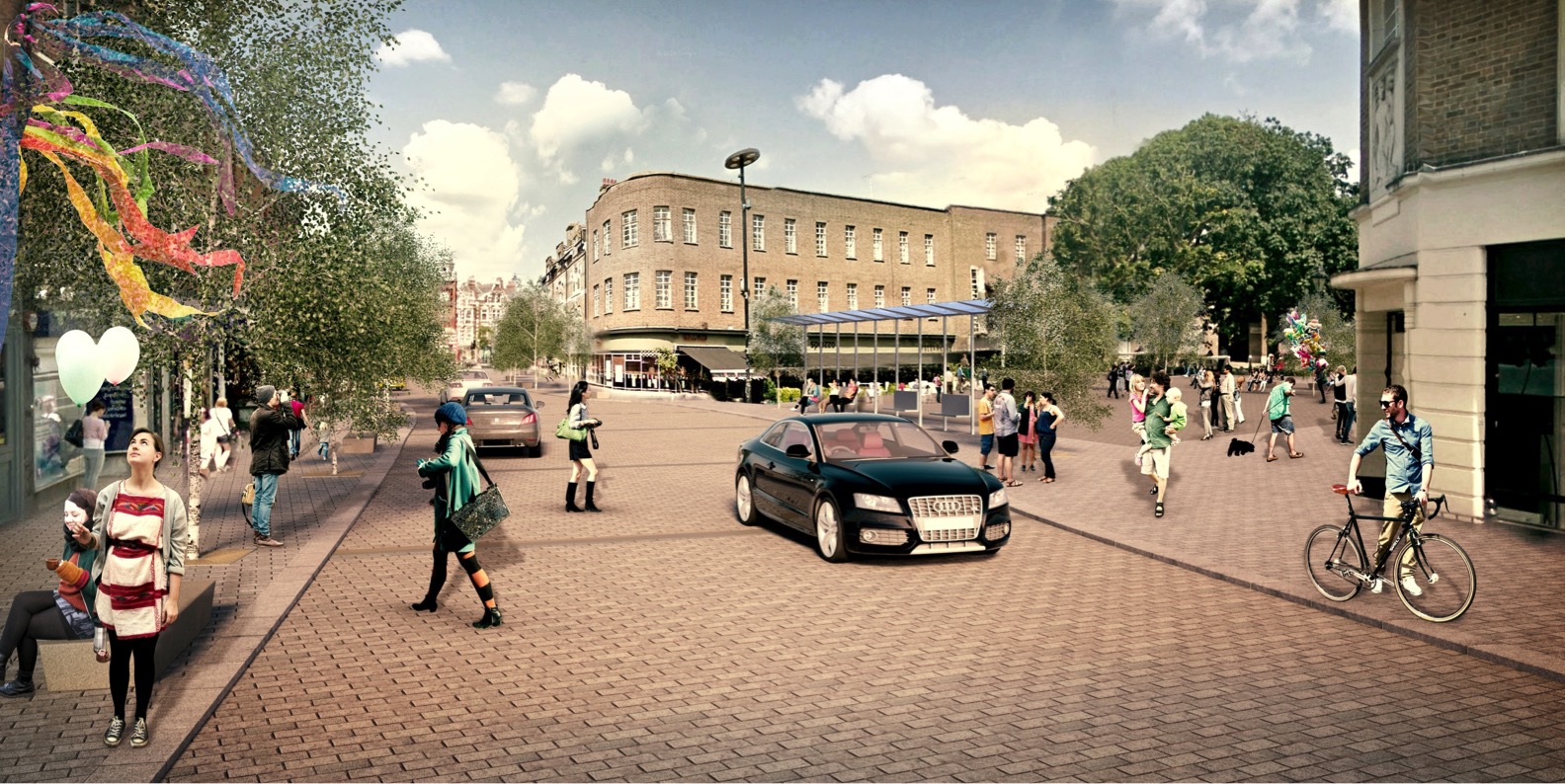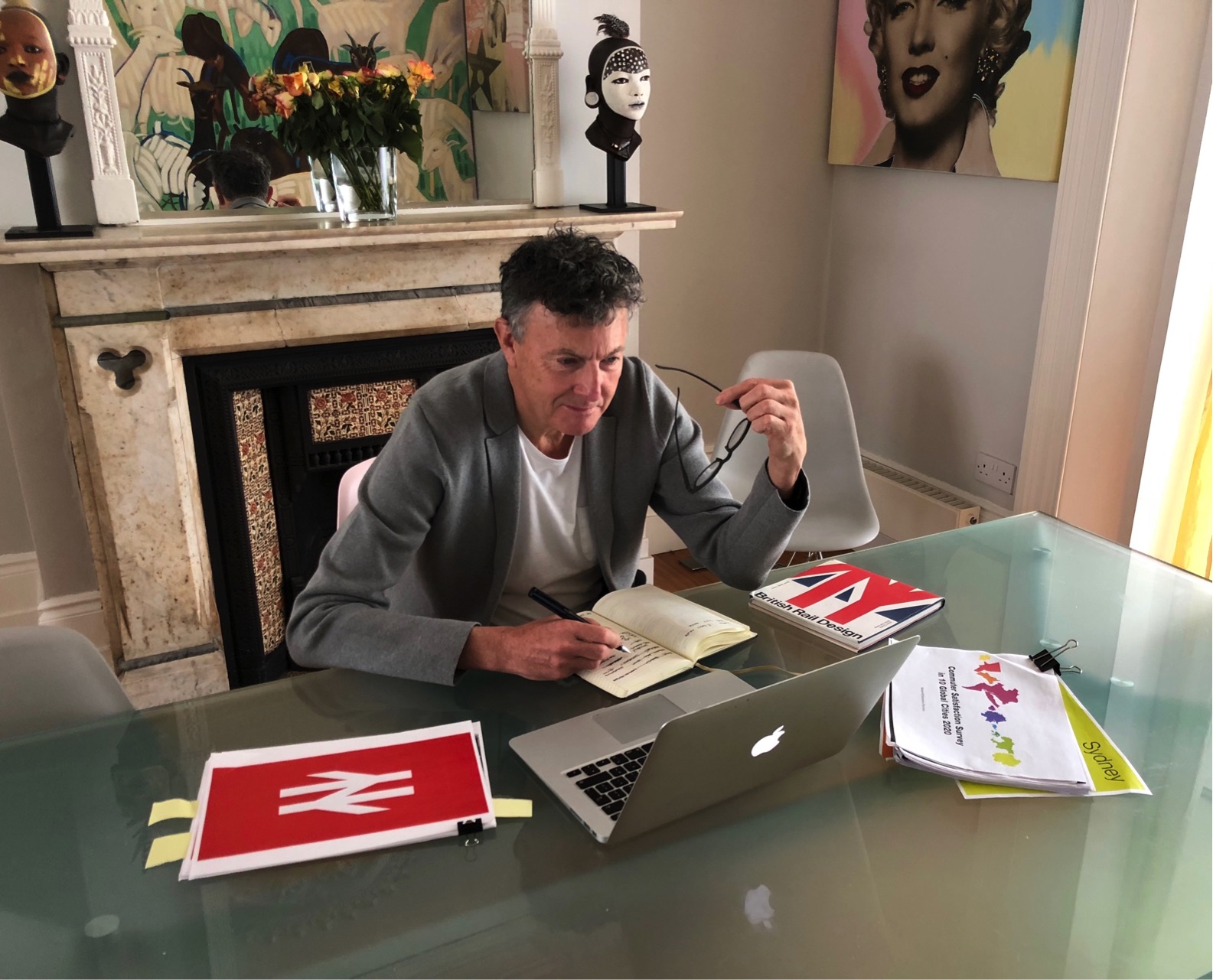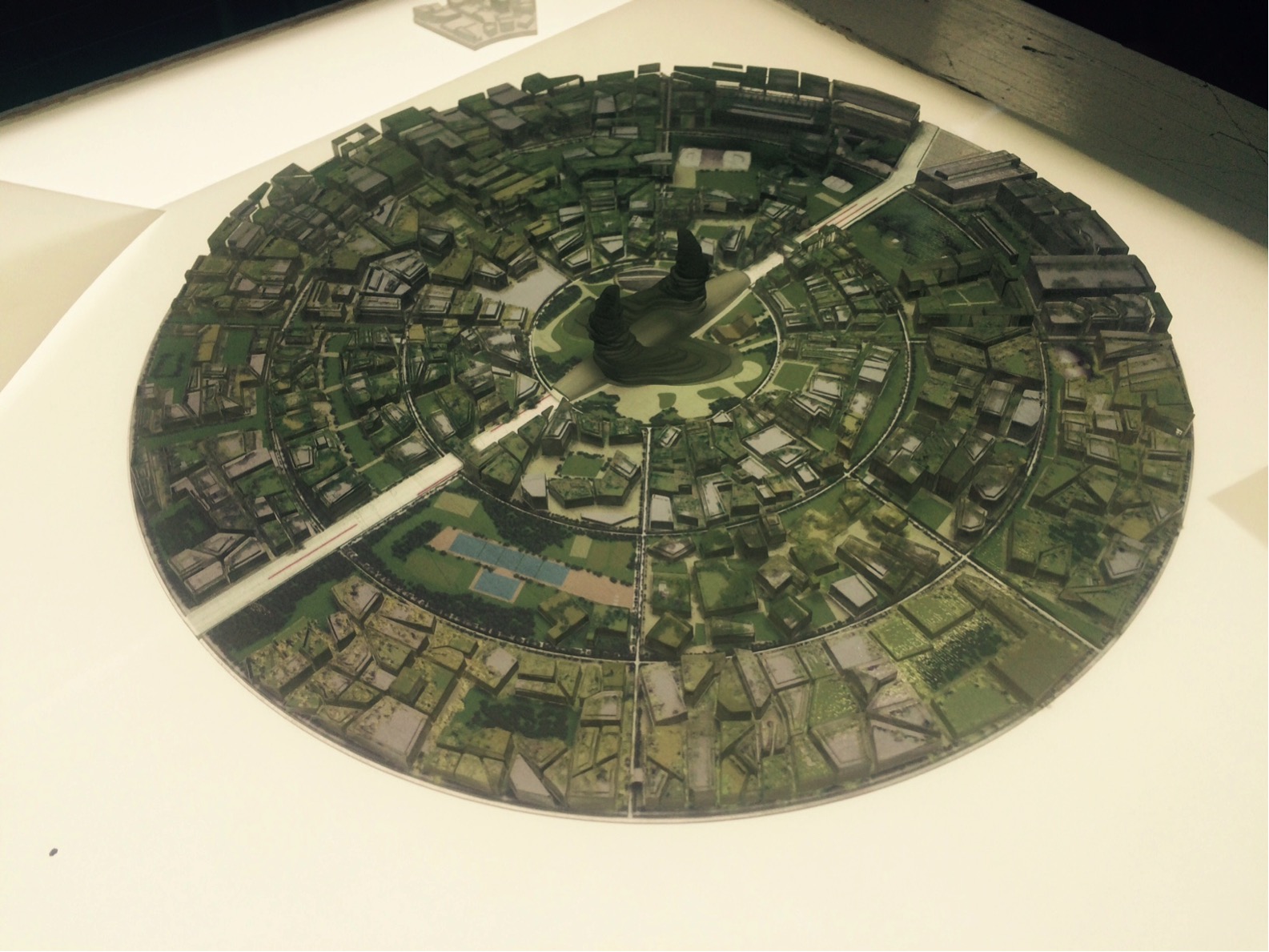Post
#WhenThisIsAllOver | Chris Williamson | Weston Williamson + Partners
20 Apr 2020
We asked for thoughts, opinions, musings, manifestos about how London might be affected by the pandemic, the lockdown and their aftermath. We'll be sharing these as they come in, and - once some sort of normality returns - we hope to get together with other organisations and hold a debate to discuss the implications for London of the current situation, the possible effects on how we live and work, and what should be done in the reconstruction phase and beyond.
Here Chris Williamson of Weston Williamson + Partners shares how he thinks cities will be affected and the changes that we should and will need to make.
It has been 5 years since that Bill Gates gave his TED talk predicting the pandemic we are now in the middle of. If you haven’t seen it you might find it interesting. But even in 2015 it was nothing we didn’t know. Hollywood was ahead with a very similar storyline to the one we are now living in the 2011 film “Contagion”. I re-watched it recently and its chillingly accurate - apart from the fact that the COVID-19 pandemic is thankfully much less easy to catch and much less deadly. That could be the next one. There can be little doubt there will be another so what must we learn in order to prevent the world from closing down again and there being more suffering and loved ones lost. And how will our cities change, our lifestyle, our politics?
Many people believe that the world will be a changed place after the pandemic with greater respect for health workers, the police and other essential workers who helped us through this pandemic. I hope it is but I’m not so sure. History teaches us that this might be the case for a while but then we revert to our previous values and opinions all too soon. After the Second World War the solidarity of the country ensured a Labour Government in the UK who introduced the amazing National Health Service with free medical care for everyone regardless of income. But in the next election 5 years later the Conservatives were re-elected (for the next 23 years) as the old order was re-established. Yes, society continued to change with education and opportunities for the working class much improved, but you probably get my point.
And what of our cities. It’s no surprise that the densest cities are the worst affected. I live in London which is going through a difficult time. Everyone reacts differently. My neighbours have fled to their second home in Dorset a few hundred miles away. My biggest chance of catching the virus is taking in their Amazon deliveries which are still arriving. I was in New York at the beginning of March when there were 2/3 cases there and 2/3 in LA. But in the past month NY has surged ahead and the reasons are understandable. The virus isn’t in the air. It is on elevator buttons, door handles, metro straps, bus rails. People in New York live closer together than in LA, they live and travel differently. Faster spread seems inevitable. At the end of the pandemic however the figures may well be comparable but there is no doubt it is spreading more rapidly in denser cities.
It looks likely that Europe and USA will be decimated but I really fear it will be a catastrophe in Africa and India where social distancing is a luxury and access to running water and hygiene is more difficult. We are fortunate in the UK to have parks and open spaces in our cities planned for well being and health reasons by enlightened visionaries. I’m sure Frederik Olmstead did not envisage his exemplary 1857 design for New York’s Central Park would a huge field hospital but he did provide it for rest and recreation, health and well-being for a rapidly growing population. There has also been an issue in London and many other cities trying to keep 2m away from other pedestrians when the pavement widths are often much narrower. We should start by prioritising pedestrians not the car. A few years ago my studio WW+P proposed pedestrianising Broadway in Manhattan and redistributing priorities. Measures such as these would offer people greater distance and help create a happier, healthier more civilised city.
I love London and would never leave despite the pandemic. It helps that I have hardly had a day of illness in my life. At school every year I used to win the award for the best attendance (it was the only award I won). I think I’m invincible so the first thing I did was sign up as a volunteer at my local hospital. I’m not at all worried about catching COVID-19 but I’m worried about passing it on to someone else. But others are quite understandably more risk averse. Having been a vegetarian for 35 years I feel angry that these pandemics seem to start from the way meat has to be farmed to feed a carnivorous world. That is perhaps one of the first things we should try to change for our health and also the health of the planet. We live on a fragile earth and this pandemic has shown that when big issues emerge there is money that can be found. We will need to repay our young people for the sacrifices they are making to protect the old and infirm by treating their concerns about climate change with a bit more urgency. We should surely see that these issues are not unrelated. Taxes will undoubtedly increase to pay for the economic upheaval caused by COVID-19 and much of this money needs to go towards a zero carbon programme. Greening our cities is a good start.
I hope the world will be a changed place. More modesty, less excess, a more caring community belief system. We are seeing just who are the valued members of our society. Many years ago I remember Tony Benn a ‘radical’ English Labour MP advocating that the BBC should not report on movements in the value of stocks and shares every hour but instead report on the number of available hospital beds and the waiting times for essential operations as a better indicator of the state of the nation. This is now the new normal, for the moment.
We need to remember this change in priorities. We need to build civilised cities with good air quality for our physical and mental health with space for nature so we can appreciate what actually does enable balance in the planets eco system. We need as a society to connect better with nature in our villages, towns and cities. Hopefully we will elect more empathetic and better prepared politicians. It is embarrassing to watch the journey of various Presidents and Prime Ministers from denial to ‘panic in the headlights’. Hopefully the Michael Gove’s Brexit statement “The public have had enough of experts” will now be seen to be as daft as it was at the time.
On my daily exercise I have been cycling round the council estates of Haringey, Islington, Hackney examining the public space in which residents are being asked to self isolate. No wonder the parks are crowded. We should reorganise the way we involve communities in all our projects. It is too confrontational. At the start of any project there should be a paid part time panel representative of all members of society established to input into the concept through to the detail working alongside the experts. We all go out on to the street on a Thursday to clap our key workers- we should involve them in the design of our communities.
As I said at the start it’s not as though we had not been warned. But we need to be better prepared for the next pandemic which could be much, much worse. And I think we will be. We need to learn from South Korea and other countries who used the new technologies to test and trace and monitor to help eradicate. We need to test everyone once a week and then we can get back to some sort of normalcy. The design of our cities can help this and start by giving more space to people and places, trees and nature, less to cars. My practice Weston Williamson specialises in transport infrastructure projects and can see a greater role for the private sector in unlocking essential public transport projects. The Covid-19 crisis has seen great public private cooperation and we hope this will spread to the development sector. Schemes at Camden and Holborn and many more could be unlocked in this way.
I was 12 when Neil Armstrong walked on the moon and have always been intensely optimistic that we can solve any problem tackle any crisis as long as there is the political will to ensure it happens. There are huge lessons to be learned from the way the Covid-19 crisis has been handled but if they are they will guide not only future pandemics but the way we tackle the environmental issues. Young people have made huge sacrifices to protect the old and vulnerable we now need to do the same to repay them and tackle climate change. I believe we will.
WhenThisIsAllOver is the London Society's debate about what the post-virus, post-lockdown world will and should look like. Contributions so far include:
- Chris Williamson | Weston Williamson + Partners | Change is needed
- Clare Richards | ft'work | Local is central
- James Raynor | Grosvenor Britain and Ireland | We need system change
- Freddy Mardlin | London’s Outside Space
- Andrew Beharrell | Pollard Thomas Edwards | Reevaluation
- Amy Warner | Appreciate More
- Mike Stiff | Stiff + Trevillion
- Lord Toby Harris | London will need fresh purpose
- Matt Brown | How should we commemorate the heroes?
- Peter Murray in conversation with Robert Elms
- Prof. Samer Bagaeen | Create a resilient economy
- Neil Bennett | Farrells | High Streets must Act or Die
- Buckley Gray Yeoman | How can design respond?
- Alistair Barr | Bring production back to the West End
- David Morley | There's only one Way
- Chris Williamson | Getting back to work
- Nicholas Falk | URBED | The suburban battle grounds
- Roland Karthaus | Matter Architecture | Institutional architecture in a time of crisis
- Jonathan Manns | Rockwell Property | Planning for #WhenThisIsAllOver
Please give your views in the comments below, or by emailing blog@londonsociety.org.uk


